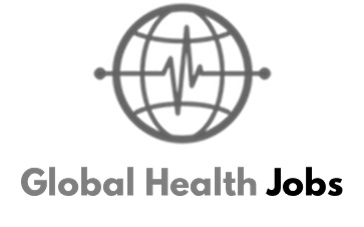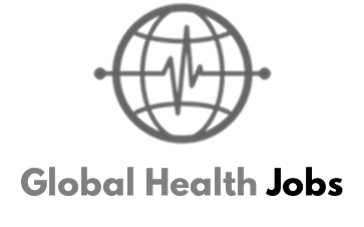Collaboration, Learning, Adaptation (CLA)/Knowledge Management (KM) Specialist- Ethiopia
About Palladium:
Palladium is a global leader in the design, development, and delivery of Positive Impact – the intentional creation of enduring social and economic value. We work with governments, businesses, and investors to solve the world’s most pressing challenges. With a team of more than 3,000 employees operating in 90 plus countries and a global network of over 35,000 experts, we help improve economies, societies, and most importantly, people’s lives.
Diversity, Equity, and Inclusion:
We welcome applications from all sections of society and actively encourage diversity to drive innovation, creativity, success and good practice. We positively welcome and seek to ensure we achieve diversity in our workforce; and that all job applicants and employees receive equal and fair treatment regardless of their background or personal characteristics. These include: (but are not limited to) socio-economic background, age, race, gender identity, religion, ethnicity, sexual orientation, disability, nationality, veteran, marital or Indigenous status.
Should you require any adjustments or accommodations to be made due to a disability or you are a neurodivergent individual or any other circumstance, please email our team at accessibility@thepalladiumgroup.com.
Safeguarding:
We define Safeguarding as “the preventative action taken by Palladium to protect our people, clients and the communities we work with from harm”. We are committed to ensuring that all children and adults who come into contact with Palladium are treated with respect and are free from abuse. All successful candidates will be subject to an enhanced selection process including safeguarding-focused interviews and a rigorous due diligence process.
Project Overview and Role:
Palladium International, LLC is seeking a CLA/KM Specialist with experience working in public health emergency or complete emergency planning for an anticipated USAID-funded project in Ethiopia. The CLA/KM specialist will report to the Monitoring, Evaluation, and Learning (MEL) Director. The central function of the CLA/KM Specialist is to ensure that the causal pathway to desired PHEM outcomes is continuously assessed and adjusted, through analysis of learning questions, a variety of information sources and knowledge, to yield the most effective course of action. The CLA/KM Specialist will support the MEL Director in leading the development and implementation of PHEM CLA strategy and help institutionalize CLA across all project activities. They will facilitate PHEM efforts to develop utilization of focused learning agendas, feed new learning information into strategy and activities at all points in the PHEM program cycle and develop innovative approaches to supporting adaptation within PHEM.
The CLA/KM Specialist will also build the capacity of PHEM staff, guiding leadership and technical staff to translate new learning, as well as information about changing conditions, into iterative strategic and programmatic adjustments. They will coordinate with the MEL Director, Informatics Specialist, and MEL Specialist, liaise with USAID, external stakeholders, and technical partners to foster learning and adaptation.
Primary Duties and Responsibilities:
– Lead development and implementation of PHEM CLA strategy in close collaboration with the project leadership, technical staff, and in-line with the Mission’s priorities.
– Lead PHEM in the development of learning agenda, consistent with overall activity strategies. Plan, establish, and direct a wide range of PHEM interventions (special studies, after action reviews, partners meetings, learning surveys, on-line engagements) to inform and advance PHEM CLA Plan
– Manage routine data reviews as part of an adaptive management process including analyzing, interpreting, and presenting data to project management and technical leads.
– Support program decision-making on interventions to advance and integrate CLA best practices.
– Collaborate with PHEM team to conceive, plan, and conduct pioneering analyses, evaluations, learning reviews, or investigations/after action reviews in program areas of key learning importance to PHEM.
– Support PHEM staff with the development of internal collaboration and play a leading role in the thought leadership surrounding collaboration and the organization of cross-functional teams.
– Develop stakeholder engagement strategies and design to leverage the resources and actions of other development actors.
– Provide valuable learning leadership to PHEM staff, implementing partners and other stakeholders. Identify ways to reduce knowledge sharing barriers, e.g. through application of e-sharing and learning tools, creation of Communities of Practice, peer and cross-learning and other contemporary, effective learning techniques and opportunities
– In coordination with MEL Director, enhance MEL approaches to supplement common and established key indicators with outcome mapping and other approaches that support continuous review and iterative course correction/adaptation.
– Build the capacity of PHEM staff to fully grasp the core concepts of CLA and directly apply them to PHEM programming.
– Advise PHEM leadership and provide on-going feedback on how new processes are working to enable PHEM leadership to course correct along the way and improve CLA practices within the program and with partners and stakeholders, with a goal toward improving PHEM outcomes.
– Guide PHEM technical teams’ utilization of research design and methodologies, applied research studies, impact assessments, capturing and sharing new knowledge, engaging stakeholders in CLA, and applying learning to ongoing PHEM activity design and management.
– Develop interactive learning opportunities that inform subsequent work plans, PHEM activity designs, target setting, assessments, studies, and potential adjustments in PHEM activity implementation.
– Seek opportunities to advance program knowledge management and learning activities, ensuring effective sharing and applied learning in topics of strategic interest to PHEM. Develop mechanism for best-fit MEL practices and on generating data needs in relation to PHEM performance tracking and in answering learning questions.
– Oversee the development of a highly user-friendly KM system and coordinate closely with MEL Director and MEL Specialist to establish methods to continuously generate useful data as inputs.
– Use expert knowledge to build capacity among PHEM staff on key knowledge management principles and learning.
– Ensure documentation and reporting of CLA progress for PHEM monthly, quarterly, and annual reports.
Key Competencies Required:
– A Master’s Degree in the field of organizational learning or development assistance such as public, business or development administration, knowledge management, economics, statistics, development studies, social science or other relevant field.
– Demonstrated professional experience in organizational or action learning, development, consulting, and/or knowledge management.
– A strong background in monitoring and evaluation of development programs, experience in the application of various assessments, learning and evaluative methods and field research experience.
– Proficiency with data collection, management, analysis, and visualization software, including MS Excel, DHIS2, SPSS
– Demonstrated experience in designing, facilitating and evaluating tailored learning activities, across a variety of themes, forums and stakeholders.
– Ability to quickly acquire a thorough understanding of a program’s objectives, cross-cutting approaches, priorities and guiding principles, results expected, planning and reporting systems.
– Understanding and experience in developing and leading stakeholder engagement activities, knowledge management programs, communities of practice and social networking.
– Demonstrated passion for facilitating and creating individual, team and organizational learning.
– Demonstrated conversation and presentation skills that can influence decision makers and foster organizational change, as well as the ability to implement and adjust them within a complex organizational setting.
– Demonstrated abilities and track record in strategic, systems and holistic thinking, managing resistance to change and understanding of organizational culture and behavior, learning and change management.
– Level IV (fluent) English language proficiency, speaking and writing required. Strong writing skills and ability to prepare clear, substantive reports and briefing papers in English, in a timely manner.
– Familiarity with a wide range of issues, such as program evaluation, gender-constraints to development, trade community development and economics
Apply now
Share
Save Job
More Information
- £ Salary Offer POA
- $ Salary Offer POA
- Experience Levels Senior
- Total Years of Experience 0-5




